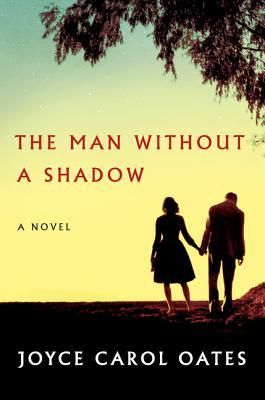Persuasion
Can Novels Influence Our Beliefs About Reality?
A novel loosely based on amnesiac HM portrays women neuroscientists as unethical
Posted October 22, 2016

Joyce Carol Oates (JCO) is one of America’s best-known and most awarded writers. The idea for her recent novel, The Man Without a Shadow published in January this year, may have been influenced by discussions with her husband, Charles Gross, a cognitive neuroscientist. The book description —“In 1965, neuroscientist Margot Sharpe meets Elihu Hoopes: the “man without a shadow,” who will be known, in time, as the most-studied and most famous amnesiac in history. A vicious infection has clouded anything beyond the last seventy seconds just beyond the fog of memory.”— gives us a clue that this novel is based on the case of HM, the real patient who became the most famous amnesiac in history. JCO indeed acknowledges Professor Suzanne Corkin’s book on HM as her primary research source, and JCO’s fictional amnesiac, Elihu Hoopes (known only, of course, to protect his identity, as EH), is indeed spookily like HM in many of his responses to the world he lives in following the loss of his ability to make new conscious memories. Likewise, the laboratory environment and the memory tests EH is given (again and again, and every time new to EH) are well researched and accurate. However, EH is in no way like HM in his background, or his personality, and the neuropsychologists likewise are, thankfully, entirely fictional (I know this as I worked with the real HM when I was a young neuropsychologist!).
The moral and ethical issues that JCO delves into are thought-provoking, especially those related to research participant exploitation. The exploitation of junior researchers by senior researchers, especially in the 1960s and earlier, is by no means a new topic (although again, thankfully, part of EH’s fictional story and not HM’s). JCO’s ability to get inside EH and view the world from his time capsule of 70 seconds is masterful and believable.
However, the twist in this story, the manipulative relationship Margot Sharpe—the neuropsychologist and ultimate leader of the EH research project—develops with EH is another story. Are we really meant to believe that this lonely woman, however obsessed she is with the patient she has built her entire career on, would fall in love with him and manipulate the man into a sexual affair (which of course he forgets after each transgression)? This is fiction, of course, but is it good fiction? Some of the reader reviews make it clear that the review writer believes that these sorts of extreme unethical behaviors as depicted in the novel must therefore actually happen in respectable research institutions (like MIT, perhaps, where the research on HM was conducted). Some even go so far as alluding to their disgust and disappointment at discovering the truth about the real-life researchers involved with the real–life amnesiac, HM.
A separate issue is the role of fiction in forming stereotypes. To quote from reader review: “As a female scientist, I am really disappointed by the content of this book! First the main character was unethical … she was selfish, dependent, not caring about her family at all. And most importantly she was unethical! …..This is not how science works.”
Of course there have been plenty of cases of sexual exploitation of clients and possibly even research subjects in the past in the psychological and medical worlds, but surely not when the exploited person is unable to remember the sex!
Is there a lesson here for fiction writers? I think so: if it is clear—and stated—that the fiction is based on or inspired by a real person, however loosely, then the author needs to specify in their author notes that precede the story (not follow it), which aspects of their characters are nothing like the real people, and which characters in their novel are entirely invented. This is especially pertinent in this case, where the researchers who worked with HM were still well and truly alive when the novel was published.


